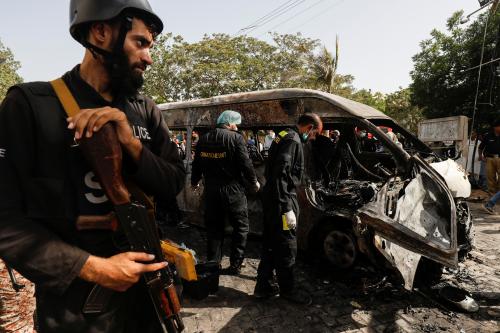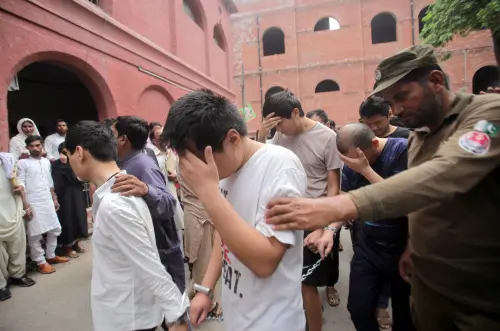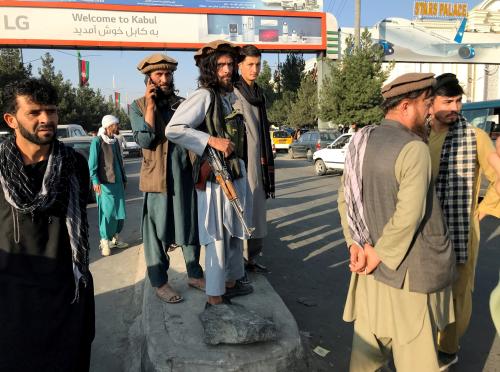

10:00 am EST - 11:00 am EST
Past Event
For the last two decades, discussions on Pakistan have centered around the U.S. war in Afghanistan and on Pakistan’s struggle with extremism, while its rich history, complex internal dynamics, and the aspirations of its citizens were largely excluded from the narrative. Nearly 20 years after 9/11, it is time for the United States to reexamine its relationship with, and understanding of, this complicated country.
On January 5, the Center for Middle East Policy at Brookings hosted a panel discussion taking a multifaceted look at this nation of 220 million people. The event included a discussion on domestic issues, ranging from the human and women’s rights situation to Islamist politics and ethnic and religious insurgencies within the country. In addition, the conversation focused on the implications of a Biden presidency for Pakistan, as well as the country’s changing role in the greater Middle East and South Asia. The panel featured Declan Walsh, former Pakistan bureau chief for the New York Times and author of the new book, “The Nine Lives of Pakistan: Dispatches from a Precarious State;” Brookings Senior Fellow Bruce Riedel; and David M. Rubenstein Fellow Madiha Afzal.
Viewers submitted questions by emailing [email protected] or on Twitter using the hashtag #USPakistan.

Vanda Felbab-Brown
September 19, 2023

Madiha Afzal
March 17, 2022

Madiha Afzal, Ranj Alaaldin, Daniel L. Byman, Giovanna De Maio, Vanda Felbab-Brown, Marvin Kalb, Suzanne Maloney, Patrick W. Quirk, Itamar Rabinovich, Douglas A. Rediker, Bruce Riedel, Federica Saini Fasanotti, Constanze Stelzenmüller, Shibley Telhami
August 16, 2021